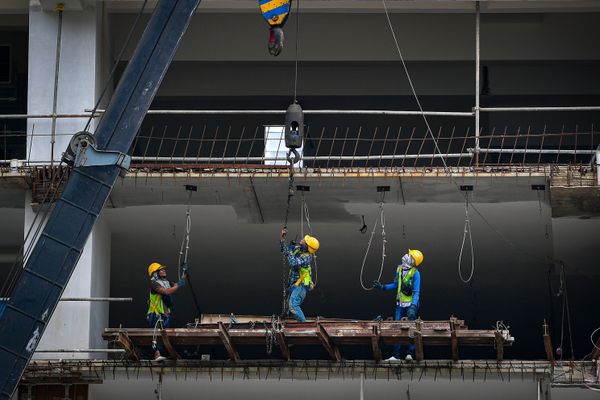KUALA LUMPUR, Aug 18 — The Housing and Local Government Ministry (KPKT) is studying a proposal to amend the Housing Development (Control and Licensing) Act 1966 (Act 118) to expand its enforcement scope to cover problematic commercial projects.
Minister Nga Kor Ming said the proposed amendments would allow for more effective and comprehensive action, including blacklisting board members of parent developer companies as well as beneficiary owners.
He said the initiative aims to strengthen preventive measures and long-term actions to minimise the risk of private housing projects becoming problematic or abandoned.
“KPKT will step up engagement with stakeholders, including enforcement agencies, legal bodies, industry players and consumer representatives, to ensure the amendments to Act 118 are relevant, comprehensive and impactful, in line with Malaysia Madani aspirations.
“With the proposed amendments, blacklisting will not only apply to parent companies but also the actual owners behind them. This is being carefully studied and, if everything goes smoothly, the amendments are expected to be tabled next year,” he said during the question-and-answer session in the Dewan Rakyat today.
He was responding to a question from Khoo Poay Tiong (Harapan-Kota Melaka) about whether board members of developer companies and commercial project developers would also be blacklisted if their subsidiaries were involved in problematic projects, and how effective the measure would be.
Nga explained that once a project has been confirmed as “sick”, KPKT would take proactive measures by blacklisting the housing developer and the board members of companies involved.
He said companies linked to the same directors would be barred from applying for new development licences, while their existing Housing Development Accounts would be frozen.
As of June 30, the Task Force for Sick and Abandoned Private Housing Projects has identified 233 delayed projects and 360 “sick” projects, with 220 of the latter having obtained the Certificate of Completion and Compliance and 14 were restored to active status, involving 25,822 housing units.
“In total, 1,127 abandoned projects have been successfully revived, benefiting 135,000 homebuyers,” he said.
Meanwhile, Nga said, the KPKT has developed a special system to allow prospective homebuyers to check the blacklist status of developers on the Teduh portal.
He said the system provides comprehensive and transparent information on housing companies for buyers’ reference.
“My advice to buyers is to refer to the Teduh system and only purchase houses from developers who are not blacklisted.
“This year alone, 109 developers have been blacklisted and barred from operating in the housing development sector to protect public rights and interests,” he said.
He was responding to a supplementary question from Dr Halimah Ali (PN-Kapar) on the effectiveness of blacklisting in the absence of an open scoring system or track record rating of developers for prospective homebuyers’ reference.





